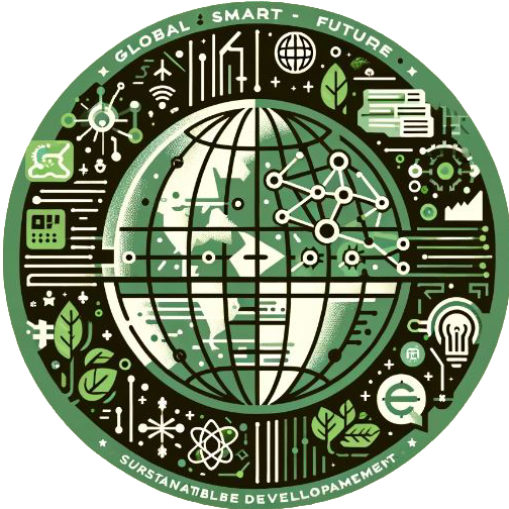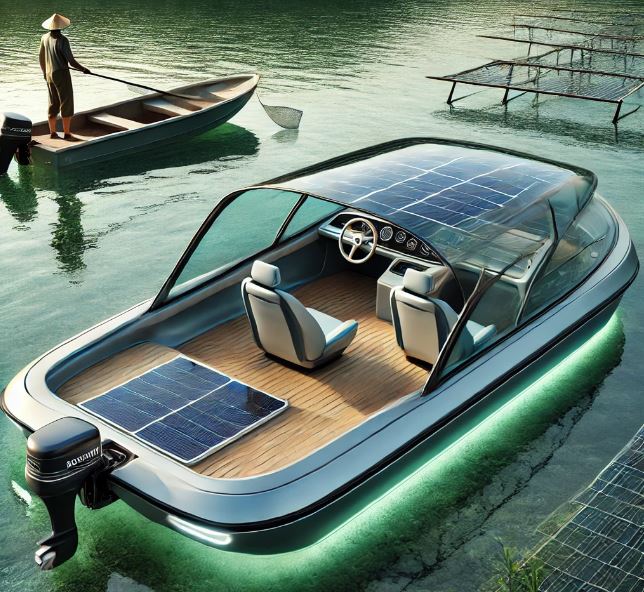Development of Ultra-Small Eco-Friendly Ships for the Mekong Delta Region
Project Title:
Development of Ultra-Small Eco-Friendly Ships for the Mekong Delta Region
Project Partners:
· Korea Research Institute of Ships and Ocean Engineering (RIMS)
o Ship model development, collaboration with Korean entities, overall project coordination.
· Ton Duc Thang University
o Research and development in electric motors, renewable energy utilization, big data, and AI applications.
· Can Tho University
o Expertise in ship design, ecological restoration, blue carbon initiatives, and aquaculture.
Project Objective:
To develop ultra-small eco-friendly ship models tailored to the specific environmental and socio-economic conditions of the Mekong Delta region. The project will address key areas such as aquaculture, blue carbon, climate change adaptation, waterway transportation, and renewable energy utilization.
Project Phases and Timeline:
· MOU Signing (Month 1)
o Establish formal agreements between RIMS, Ton Duc Thang University, and Can Tho University to outline roles, responsibilities, and collaboration frameworks.
· Preliminary Feasibility Study (Months 2-3)
o Conduct an in-depth analysis of the Mekong Delta region’s environmental conditions, waterway characteristics, and socio-economic needs.
o Assess the technical and economic feasibility of developing ultra-small eco-friendly ships in the region.
· Project Planning (Month 4)
o Develop detailed project plans, including design specifications, technology integration strategies, and resource allocation.
o Define the project scope, deliverables, and key performance indicators (KPIs).
· Model Development (Months 5-7)
o Design and develop prototypes of the ultra-small eco-friendly ships, focusing on energy efficiency, low environmental impact, and suitability for the Mekong Delta region.
o Incorporate advanced technologies such as electric propulsion systems, renewable energy sources, and data-driven performance optimization.
· Testing and Evaluation (Months 8-9)
o Conduct extensive testing of the prototypes in real-world conditions to evaluate performance, durability, and environmental impact.
o Gather feedback from stakeholders and local communities to identify areas for improvement.
· Improvement and Refinement (Month 10)
o Based on the testing and feedback, refine the ship models to enhance performance, safety, and efficiency.
o Address any technical challenges or limitations identified during the testing phase.
· Workshop and Final Report Meeting (Month 11)
o Organize a workshop to present the project outcomes, share knowledge, and gather input from experts, stakeholders, and local authorities.
o Prepare and present a final report detailing the project’s achievements, lessons learned, and recommendations for future work.
· Commercialization and Future Development (Month 12 and beyond)
o Explore opportunities for scaling up the project and commercializing the developed ship models.
o Develop a roadmap for future research, development, and deployment of eco-friendly ships in the Mekong Delta and other similar regions.
Expected Outcomes:
- Successful development of ultra-small eco-friendly ship models specifically designed for the Mekong Delta region.
- Enhanced cooperation and knowledge exchange between Korean and Vietnamese institutions in the fields of ship technology, renewable energy, and environmental sustainability.
- Contribution to the sustainable development of the Mekong Delta region by providing innovative solutions for aquaculture, blue carbon, waterway transportation, and climate change adaptation.

